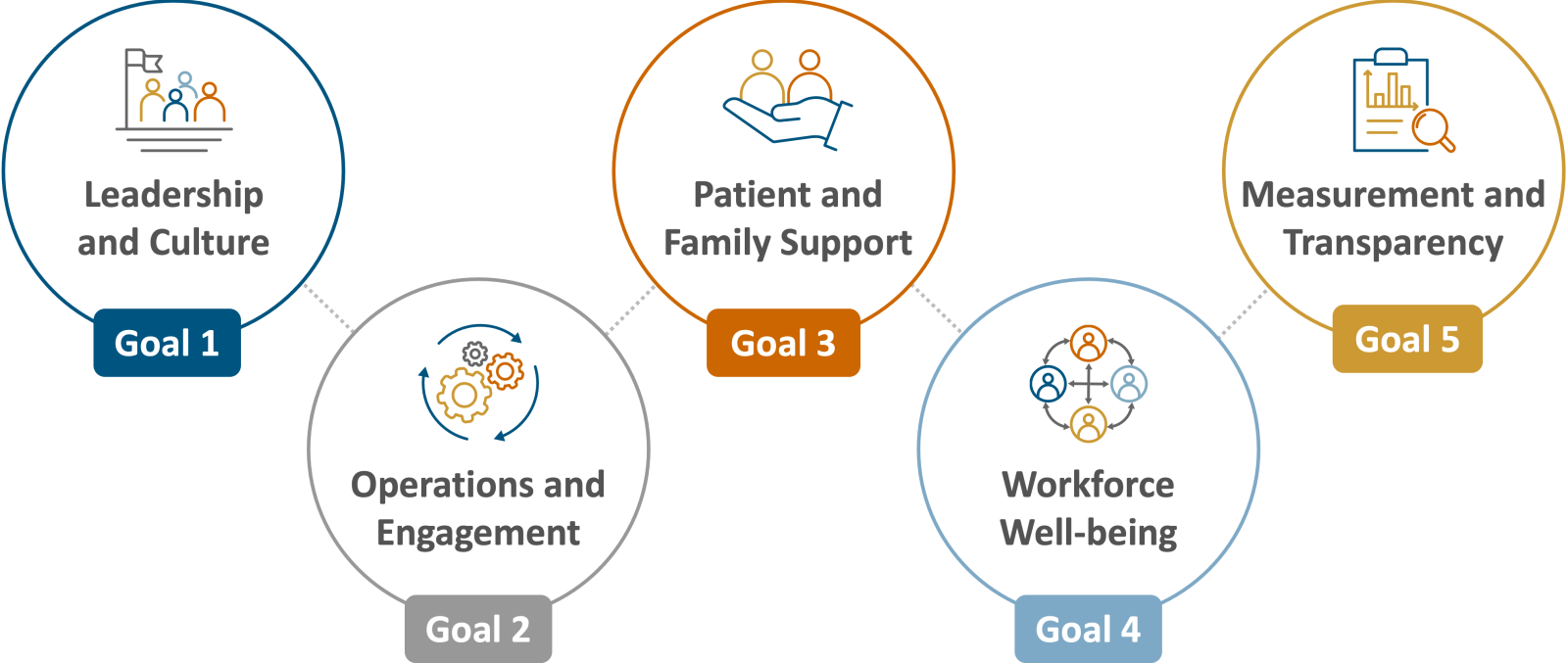Roadmap sets ambitious goals, workable strategies to spur bigger safety gains
The Roadmap to Health Care Safety for Massachusetts is a multi-faceted, multi-year strategic plan to accelerate progress on making health care safer for patients as well as the health care workforce.
The Roadmap, released yesterday at the Massachusetts Health Policy Forum, is organized around five critical goals in the areas of leadership and culture, operations and engagement, patient and family support, workforce well-being, and measurement and transparency.
It also defines a set of strategies, with associated action steps, that target information, incentives and implementation support where needed so that providers, policymakers, payers and others can work together to achieve the goals.
The Roadmap is the work of the Massachusetts Healthcare Safety and Quality Consortium, which began meeting in 2019 in response to research showing the prevalence of preventable medical harm in the state and the financial, physical and emotional consequences for patients. The Consortium is led by the Betsy Lehman Center.
While there are also renewed efforts underway nationally to similarly re-focus attention on safety improvement, the Roadmap is the first attempt by a state to drive change through a public-private partnership of committed individuals and organizations who are well-positioned to execute on the wide range of strategies and planned action steps.
Stemming from the work of four task forces — tapping the expertise of more than 115 contributors — the Consortium coalesced around five goals for health care safety across the continuum of care in the Commonwealth:

- Leadership and Culture: All leaders of health care provider organizations across the continuum of care make safety a core value and enduring priority, continuously act to advance safety culture and operations, and are accountable for safety performance.
- Operations and Engagement: All provider organizations have systems in place that enable leaders, managers, clinicians, and staff to continuously identify safety issues, resolve problems, integrate their operations with safety strategy and plans, and engage patients and families as partners in the work.
- Patient and Family Support: All patients and families are engaged and supported to avoid preventable harm in their own care, and receive timely, transparent, and continuing communication and support when things go wrong.
- Workforce Well-being: All provider organizations strive to eliminate undue workplace stresses and conditions that impact patient safety and the safety and well-being of the workforce, and clinicians and staff have the psychological safety and support they need to continuously engage in safety improvement.
- Measurement and Transparency: The state’s health care safety data systems are optimized and harmonized and provide timely and useful information about providers’ safety performance for providers, policymakers, and the public.
We know that there is still so much to be done, but this Roadmap will guide us along the way and make Massachusetts a national model for health care safety.
The Roadmap calls for shifts in policies, incentives, awareness of safety risks and consequences, and resources to drive meaningful gains in safety. It also emphasizes the need to integrate safety improvement with work on other health care priorities including health equity, workforce challenges, and patient experience.
The Consortium seeks to launch five initial action steps in the coming months to lay the foundation for progress on the Roadmap goals. Additional action steps associated with the Roadmap’s strategies and goals are underway, and more are anticipated in the coming years.
Efforts to improve health care safety in the nearly 30 years since Betsy Lehman died of a preventable medical error have met with some successes. But spreading and scaling those successes has proved challenging.
The Roadmap also calls for increased attention to and support for the roles in safety played by patients and families, the health care workforce and particularly health care organization leaders, including board members, executives and owners.
Finally, the Roadmap calls on state health care agencies, providers and payers to better align safety data systems to provide timely and useful information about safety performance for providers, policymakers, and the public.
“We have been privileged to lead the Consortium’s work over the last several years and are grateful to the many, many individuals and organizations that have come together to propel meaningful gains in safety for patients, families and members of the health care workforce,” says Barbara Fain, Executive Director of the Betsy Lehman Center. “We know that there is still so much to be done, but this Roadmap will guide us along the way and make Massachusetts a national model for health care safety.”